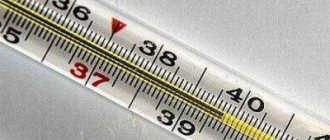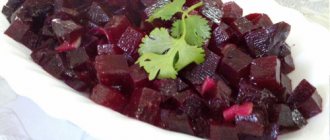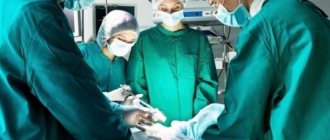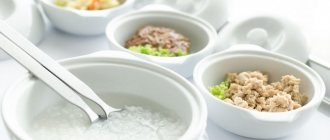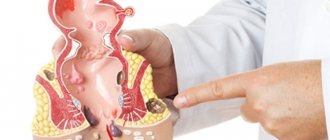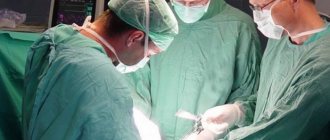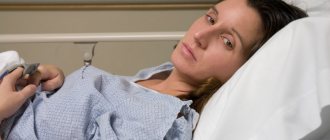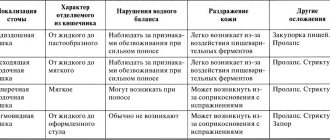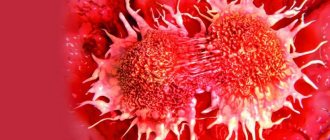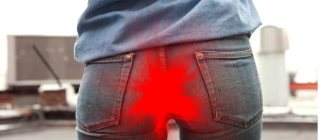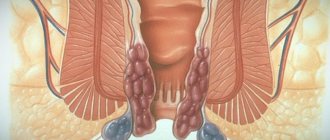Laparoscopic operations are minimally traumatic for the patient, which is why their popularity is steadily growing. However, they have their consequences and complications. Even diagnostic laparoscopy in most cases requires general anesthesia and the injection of carbon dioxide into the abdominal cavity, which can negatively affect the condition of the intestines. The most common problem is the inability to go to the toilet - almost half of patients experience this. Another common complication is diarrhea. In the case when laparoscopy is performed for the purpose of removing an organ or other surgical intervention on the organs of the digestive system, such consequences are almost guaranteed.
Stool upset is a common occurrence after laparoscopy.
Preventing constipation after surgery
Many patients do not know why constipation occurs after surgery or what to do to prevent it.
After surgery, it is very important to follow a number of recommendations that will ensure rapid activation of peristalsis:
- Stepped nutrition. In the early stages of rehabilitation (about 10 hours after surgery), the patient is given liquid food - tea, jelly, juice. Such products do not harm the injured intestines. After a few days, the patient can be switched to solid food. At first, slimy porridges and vegetable broths are used, after 7-10 days the patient is transferred to a regular therapeutic diet.
- Proper drinking regime. A sufficient supply of water to the intestines contributes to the formation of stool of a soft consistency, which will not injure the mucous membrane of the organ. Therefore, after surgery on the digestive system, the patient should drink 1.5-2 liters of water daily.
- Early activation of the patient. After surgery, it is recommended to start moving immediately. On the first day, the patient can rise or sit up in bed and change his position. An early start to movement helps restore the tone of all muscle fibers, including those in the intestinal wall. In the following days, a ward regime is assigned - the patient can get up and move around within his room, and go to the toilet independently.
After discharge, it is recommended to carry out physical therapy and engage in light sports. A good option for physical activity is long walks in the fresh air.
It is important to correctly calculate physical activity and avoid overexertion.
- Abdominal massage. To stimulate peristalsis, the patient can independently massage the anterior abdominal wall in the intestinal area. The massage movements should be soft, slow, stroking, and you should not put too much pressure on the stomach. Before starting procedures, you must consult with your doctor. This is necessary because massage is not recommended for some conditions. For example, you should not massage after hernia surgery, since inaccurate pressure on the abdomen can cause a relapse of the disease.
- According to indications - laxatives. Mild laxatives can be used to prevent constipation in the postoperative period. It is preferable to use herbal preparations. A good treatment method is microenemas, which are prepared on the basis of oil. The use of laxatives should be agreed with the patient's attending physician. Only a doctor can detect possible contraindications and select appropriate medications.
Thus, constipation after surgery is a common complication that is associated with impaired intestinal muscle activity. In order to avoid the occurrence of an unpleasant symptom, it is necessary to carefully follow the recommendations of doctors in the postoperative period.
Surgical interventions negatively affect intestinal motility. Most often, the patient begins to suffer from constipation after operations to remove tumors and the appendix, as well as after surgical interventions on the uterus, rectum, and gall bladder.
Massage and exercise therapy
After surgery, constipation can be caused by low physical activity. The patient should give preference to moderate physical activity. It is important to take walks in the fresh air every day. In addition, you need to perform a set of simple exercises.
Moderate physical activity improves the functioning of the digestive system. A set of exercises is selected by a doctor. Exercise therapy is aimed at strengthening the abdominal and pelvic floor muscles. A daily walk in the fresh air helps prevent the formation of stagnant processes.
The video shows a technique for performing acupressure against constipation:
General recommendations after surgery
Simple recommendations after removal of hemorrhoids will help the patient eliminate the risk of complications and prevent relapse of the disease.
Patients need:
During the first 2 weeks after surgery, the person must remain in bed. Otherwise, any excessive effort on the part of the patient may cause complications. The patient should also avoid constipation
Try to keep his stool soft. Drink 1.5 to 2 liters of water daily to normalize intestinal function, relieve constipation, and thin stool. It is important to keep the anus clean. Wash yourself after each bowel movement with cool water.
It is better to refuse toilet paper. During the recovery period after surgery, visits to the sauna and bathhouse are excluded.
Even lifting a bag of groceries can cause bleeding and prolapse of hemorrhoids.
Physical exercise
Swimming is very beneficial. It stimulates the body and helps a person fight stress after surgery.
After two weeks, the person can begin to exercise. They need to be done gradually and consistently. It's better to start by walking around the house for 5-10 minutes. After a while, you can start going out into the fresh air and doing morning exercises.
People who were actively involved in sports and went to the gym before surgery should remember an important rule! You can start classes only after 2, or preferably 3 months. And at first, the exercises should be carried out with minimal load, without the use of weights or barbells.
Is it possible to exercise after hemorrhoids? Which sports are allowed and which are prohibited...
Proper nutrition
This is perhaps the main condition for a quick recovery. What is proper nutrition after surgery?
Subject to six important conditions:
- you need to eat often, but in small portions;
- food should be light and easily digestible so as not to lead to bloating;
- It is forbidden to eat any food in the first hours after surgery;
- The menu must include fresh vegetables and fruits. They will help soften the stool and reduce the appearance of punctures in the seams. Will support the human immune system;
- Dishes must be steamed. Can be boiled or stewed;
- It is necessary to limit salt intake, it irritates the intestines.
Foods that are good to eat after surgery
A person can start eating within a day after hemorrhoid removal.
Acceptable foods for the patient during this period:
- fermented milk products (whey, kefir);
- low-fat chicken broth;
- boiled meat (chicken, veal);
- boiled vegetable broths;
- fish;
- porridge with water from buckwheat, pearl barley or oatmeal;
- fruits, vegetables and berries that do not contain starch (strawberries, carrots, apples, tomatoes, cucumbers);
- dried fruits;
- wholemeal bread;
- vegetable oil (instead of butter, sour cream and mayonnaise) for preparing salads and cereals. It is also useful to add it to kefir before bed.
Prohibited Products
After hemorrhoid removal, you should not eat the following:
- any food that causes constipation and increased gas formation. For example, whole milk, grapes, legumes, greens. Vegetables and fruits containing coarse fibers and starch. Eat white bread, baked goods, sweets;
- rich meat broths;
- spicy, fried, smoked, spicy, pickled and canned foods;
- It is strictly forbidden to drink alcoholic beverages. It is better to give up smoking;
- you need to exclude strong tea, coffee, sweet and carbonated drinks.
Therapeutic diet after surgery Useful recommendations for proper nutrition after hemorrhoid removal
What are the possible consequences of resection?
To normalize the functioning of the gastrointestinal tract after surgery, rehabilitation is necessary, as intestinal motility is disrupted. This is a wave-like contraction of the muscles of the organs responsible for moving digested food from the upper sections to the outlet. The state of digestion depends on motility: difficulty or, on the contrary, too rapid passage of feces, absorption of nutrients worsens. Waste products are not completely eliminated and the process of fermentation and decay begins, which has a beneficial effect on the proliferation of bacteria and parasites.
Instability of peristalsis occurs due to surgery and subsequent procedures, such as the patient taking antibiotics, which upsets the balance of bacteria in the gastrointestinal tract.
Symptoms
Constipation after surgery is characterized by the following symptoms:
- Complete or partial absence of stool for more than two days.
- The stool has a hard texture, mucus or bloody discharge.
- Loss of interest in food.
- Insomnia.
- Deterioration of general condition.
- Heaviness and pain symptoms in various parts of the abdominal cavity.
- Nausea, urge to vomit.
- An increase in body temperature, which may be a sign of a complication or inflammatory disease in the body.
Disruption of the digestive system after surgery can be solved with the help of special medications, which we will discuss later.
Constipation after surgery
The problem in question is often observed in patients who have undergone surgery to remove a hernia, appendicitis, and also after intestinal surgery. Constipation in this case is characterized by difficulty in defecation or its complete absence for a long time. This phenomenon negatively affects the work of all internal organs and systems.
Postoperative constipation has characteristic symptoms:
- Feeling of fullness in the intestines, heaviness in the lower abdomen.
- Loss of appetite and sleep disturbances.
- Nausea and vomiting resulting from intoxication of the body.
- Sudden change of mood.
Postoperative constipation has characteristic symptoms such as nausea and vomiting.
Hard feces can injure the rectal mucosa and cause internal bleeding.
Stool retention that occurs months later
Experts note that after removal of the gallbladder, almost every person suffers from atony, but the recovery period lasts about a year, after which the functioning of all organs improves and stool returns to normal. You just have to be patient and help your digestive system work.
However, it also happens that constipation appears a year after removal of the gallbladder. In this situation, the following problems lead to difficult bowel movements:
- presence of bad habits;
- poor nutrition;
- the development of other diseases affecting the gastrointestinal tract;
- passive lifestyle.
IMPORTANT: if constipation occurs rarely, then this is not a cause for concern, since it does not pose a health hazard and is not a symptom of serious illness. You should immediately seek medical help if, during stool retention, the stool looks fatty, contains undigested pieces of food, mucus, blood, or if symptoms such as vomiting, elevated body temperature, or pain during bowel movements occur.
General information about constipation after surgery
Atony after surgery is a consequence of anesthesia and surgical trauma. The intestines are not able to function correctly for some time. It is possible to restore the functioning of the organ only if you follow the doctor’s recommendations.
Doctors identify the following causes of constipation after surgery:
- dysbacteriosis while taking antibacterial drugs;
- performing surgery on the digestive organs;
- disturbance of intestinal motility;
- weakening of muscles due to the use of anesthesia;
- low physical activity after surgery;
- non-compliance with nutritional recommendations.
Constipation often occurs after surgery on the gastrointestinal tract.
The listed reasons are the main ones. Specific provoking factors are described in the table.
| Failure to follow recommendations for restoring motor activity of the intestinal tract | To restore the functioning of the stomach and intestinal tract, the first meal should occur 9-11 hours after surgery. Constipation can be caused by rough and hard foods. |
| Lack of proper preparation before surgery | Difficulty during bowel movements may occur in a patient who refused an enema before surgery. |
| Failure to follow recommendations in the postoperative period | Constipation always occurs in patients who ignore doctor's instructions after the procedure. You need to take a responsible approach to the postoperative period. |
Symptoms of the disorder
Doctors identify the following main signs of constipation after surgery:
- defecation occurs no more than three times a week;
- feces are dry, hard, and difficult to leave the body;
- lack of relief after defecation;
- presence of painful syndrome during bowel movements.
In the presence of constipation, a number of complexes can arise. In addition, the immune system is significantly reduced. When defecation is delayed, rotting occurs. Toxic substances spread throughout the body. The patient may experience insomnia. He becomes irritable. In the absence of timely treatment, bleeding occurs.
With constipation, the patient does not feel relief after going to the toilet
Treatment
When the first symptoms of hemorrhoids and constipation accompanying them appear, you need to undergo diagnostics of the body. Based on the test results, the doctor will be able to prescribe proper treatment for constipation due to hemorrhoids, which will relieve the patient from pain and discomfort.
Medication
Drug therapy involves the use of the following drugs:
- irritants that provoke stomach contractions: Guttalax, Regulax;
- laxatives used for severe constipation: Forlax, Lavacol;
- prebiotics that relieve the patient of heaviness in the abdomen and restore the intestinal microflora: Duphalac, Poslabin.
In addition, doctors may recommend treatment with suppositories, which is appropriate after surgery to remove nodes or during pregnancy:
- glycerin suppositories are used during pregnancy and after childbirth;
- sea buckthorn suppositories relieve pain, eliminate inflammation, restore the intestinal mucosa;
- gas-forming suppositories are appropriate if the urge to stool is regularly suppressed: Ferrolax, Calciolax;
- postoperative suppositories can cope with the negative effects of anesthesia on the intestines and stimulate the production of mucus in the rectum: Bisacodyl.
Bisacodyl is able to cope with the negative effects on the intestines from anesthesia and stimulate the production of mucus in the rectum.
Before starting treatment with medications, you should consult your doctor. Self-medication can aggravate the situation and cause complications.
Folk
With the help of traditional medicine, you can restore intestinal functions, speed up peristalsis and normalize bowel movements. Several effective recipes:
- Eating a large amount of dried fruits: prunes, dried apricots, figs.
- Take 250 ml of boiled water, add 20 g of senna leaves, put on low heat and simmer for about 15 minutes. Add liquid so that its volume is 200 ml and drink 0.5 cups at a time if necessary.
- Take a fresh tomato, cut out the core, pour olive or sunflower oil inside and eat before bed. Contraindicated in obesity.
- Drink beet juice. But here patients with stones or sand in the kidneys need to be careful.
- Dissolve 1 tsp. aloe juice in 250 ml of water and drink before meals.
- Take a piece of hard lard, cut out a figure in the form of a rectal suppository, and freeze it. Insert into the anus if you have problems with bowel movements.
Dissolve 1 tsp. aloe juice in 250 ml of water and drink before meals.
An enema of boiled water cleanses the intestines well. To do this, you need to take 1 liter of liquid into an enema, insert it into the rectum and remain in a horizontal position for some time. This procedure is allowed to be performed at home no more than once every 7 days.
Therapeutic diet
In case of exacerbation of hemorrhoids accompanied by constipation, patients are recommended to have a special diet that softens the stool. Food should be rich in liquid and satisfying dishes, after which a person does not feel hungry.
Principles of proper nutrition for constipation:
- Give preference to oatmeal, pearl barley, buckwheat and barley porridge. Eliminate rice and semolina porridge from your diet.
- Eat rye or bran bread.
- Add beets, carrots, cucumber, zucchini and pumpkin to dishes. Vegetables are allowed to be boiled and steamed.
- There are more dried apricots and raisins, which improve peristalsis. This includes bananas, oranges, and apples.
- Consume at least 50 g of bran daily, which can be crushed and added to dishes.
- Use sunflower or olive oil to dress salads. These products soften stool and restore intestinal function.
It is forbidden to eat overcooked food; it is better to undercook cereals and vegetables.
Products that provoke disturbances in the gastrointestinal tract:
- baked goods, sweets, white bread;
- fried, hot and spicy foods;
- smoked sausage, meat;
- onions, garlic, radishes and mushrooms;
- legumes, sorrel, spinach;
- lard and animal fats;
- whole milk, cottage cheese;
- strong tea, coffee;
- pear, pomegranate;
- carbonated drinks and alcohol.
Due to the fact that these ingredients lead to increased gas formation and bloating, people with constipation are not recommended to use them.
Foods that help digest food:
- sweet varieties of fruit;
- melon, lettuce, dill;
- low-fat kefir, fermented baked milk, sour cream;
- fresh juices;
- jam, honey, jam;
- white cabbage, which contains a lot of plant fiber.
If you have constipation, it is important to follow a diet constantly, and not just during the treatment period. A small amount of forbidden food can be allowed only with long-term improvement of the condition
Drug therapy
Often, in order to normalize the process of defecation after using anesthesia, anti-inflammatory and painkillers, doctors prescribe complex treatment. In the first few days, the patient may be recommended Proserin, the action of which is based on increasing the secretion of the gastrointestinal glands. It promotes normal digestion of food and is prescribed as a 5-day course of injections. If after 2-3 days the stool has not returned to normal, enemas such as Microlax are included in the therapeutic regimen.
Help: Glycerin suppositories also act similarly to this medication.
Enemas cause the urge to defecate, after which emptying occurs. However, the drugs do not improve intestinal motility, but only normalize its functions for a short period of time.
According to indications, treatment is supplemented with:
- prebiotics and probiotics that restore microflora (Hilak Forte tablets or Linex sachets);
- laxatives (“Guttalax”, “Forlax”);
- enzymes (“Creon” or “Pancreatin”).
Sometimes products that contain pancreatin can have the opposite effect. If the problem worsens after taking them, the drug should be discontinued immediately. Long-term use of laxatives may also cause addiction and increase the risk of dehydration.
It is worth noting that in order to avoid the development of irritable bowel syndrome or flatulence, it is best to drink laxatives after using glycerin suppositories or an enema.
You should not eat before surgery to remove hemorrhoids.
I won’t talk and languish for a long time, let’s get straight to the point. Let's say you have surgery scheduled for tomorrow to remove hemorrhoids. Today, I do not recommend eating a lot, not eating solid food at all, only diet dishes. And in the evening, I don’t recommend you to eat at all, you drank tea and that’s it. The next day, of course, don’t eat anything, because the operation is for today. In short, you should not eat before surgery to remove hemorrhoids, believe me, this is for your own good. Two hours before surgery, do two enemas and go to the surgeon for surgery.
Ointments and tablets after surgery to remove hemorrhoids
The operation was successful, you are under the influence of anesthesia, and you don’t feel anything yet. The doctor probably prescribed you pills and ointment. I was prescribed: Heperin ointment, Procto-Glyvenol ointment, Nimesil powder, Trichopolum tablets, Ketolong tablets, and Detralex 1000 mg tablets
Here is your list of medications for a speedy recovery after surgery, it may be a little different, it doesn’t matter. The important thing is that you can buy everything that the doctor prescribes, this is a complex operation, the risk of infection is very high, so don’t spare yourself, don’t joke
So, there are medications, the operation was done, at night you take the medications you bought, apply ointments to your butt.
What can you eat after hemorrhoid removal?
Everything is fine, all that remains is to figure out what you can eat during the days of recovery after hemorrhoid removal. I recommend that the most important thing is that before each meal, take a sip of sunflower oil, preferably natural, not from the store, but from the market, where they sell sunflower oil on tap, which smells like that. But if you don’t have such butter, then you can use store-bought butter – two sips, and only after that eat. What can you eat to prevent constipation 100%: boiled grated beet (can be with mayonnaise or sunflower oil), pea puree (also add a spoonful of sunflower oil in the puree), kapusnyak soup with a minimum of potatoes, red borscht with a minimum of potatoes, and always prunes, Prunes after surgery to remove hemorrhoids are an excellent laxative. Of course, you can’t eat anything spicy, any kind of porridge is better for now, too, to the side, eat for a few days only cabbage soup and red borscht with a minimum of potatoes, prunes and bananas, you can also have an apple, but you need to peel it.
Sunflower oil for constipation
And don’t forget, before you eat anything, take a sip of sunflower oil. I am giving you recommendations based on my experience; I messed up a lot, and suffered a lot because of it. Don't repeat my mistake. If you eat whatever you want immediately after surgery to remove hemorrhoids, then constipation is guaranteed, and the pain with constipation will be such that you can lose consciousness. Remember: sunflower oil will save you from constipation, and sunflower oil will save you from constipation.
How to quickly get rid of constipation
If you have done it and you are already constipated, and you only recently had surgery to remove hemorrhoids, then you need to urgently take action, you need to quickly get rid of constipation. The first thing you need to do is drink a glass of kefir and a few sips of sunflower oil, you can stir the sunflower oil directly with kefir, the kefir should not be greasy. The second thing you quickly need to do is eat a prune meal, 100-200 grams of prunes. The most immediate and most effective remedy for relieving constipation is sunflower oil with kefir and prunes. Be healthy.
How many days after surgery to remove hemorrhoids can you eat properly?
Hello
I decided to finish the article because it is very important. In general, I’m already on the 16th day since I had hemorrhoids removed with a laser, and I already have my own personal experience in this matter
In general, here is the most correct information how many days after the operation to remove hemorrhoids can you eat fully: after two or three days you definitely need to eat fully, definitely soups and borscht, black and vysivkov bread, avoid fried foods, pepper too, eat salads, cutlets on steamed eggs, boiled eggs, and try to drink more liquid. Of course, it hurts to go to the toilet, but if you don’t eat anything at all, the wounds will not heal faster, but on the contrary, constipation will appear and it can worsen your health condition. So we don’t allow constipation and diarrhea either; the stool should be soft so as not to injure the wounds. For a couple of days after the operation, you can be a little patient with food, eat a little at a time, but eat, and after three days you no longer need to limit yourself in the amount of food. This information is from my personal experience.
Video what to do if you are constipated after hemorrhoid removal
How to adjust your intestines to a healthy way
Did you know that poor bowel function leads to a whole series of health problems? Failures in the functioning of the gastrointestinal tract have the insidious feature of not occurring in one day. A person neglects separate meals, allows himself to eat food late in the evenings, and chews it “on the run.” As a result, he gets dysbacteriosis, at the same time his immunity is weakened, and in the end - unsatisfactory health.
What to do if you have an unhealthy gut
If you're serious about improving your gut health, you don't have to wait until you get sick. Start eating right, cleanse your body regularly, and get a special massage.
Get ready for the important work - creating harmony with your body and implementing healthy eating habits for your body is the most important thing now.
Nutrition for problem intestines
The simultaneous consumption of carbohydrates and proteins is extremely undesirable. You need to eat fish, meat and other protein foods separately. Diluting them with side dishes of potatoes, flour products and cereals is harmful for a weakened intestine. You will have to limit your consumption of flour products. Carbohydrates that come from fruits and vegetables have a less aggressive effect on the intestinal tract, so they are consumed with these categories of foods.
If you have intestinal problems, you need to develop a healthy habit of chewing your food thoroughly. In this way, you will solve three problems at once: normalization of the intestines, the issue of quick satiety and getting rid of unnecessary kilograms. After all, the mechanism of gradual assimilation of products, planned by intelligent nature, originates in the oral cavity. And if we violate it, then we have to pay for it. Everything we eat settles on the intestinal walls, producing toxins and slowly poisoning our body. Conclusion: chew solid food until it becomes mushy.
Another important rule for the gastrointestinal tract is time limitation of the diet. Due to the inactive state of the intestines, you should not eat after 19-20 hours
If this axiom is violated, we get extra calories in our “problem areas”.
People who care about their health should heed one more piece of advice: the habit of washing down food with water is especially harmful, as it makes digestion difficult. Nutritionists recommend drinking water 1 hour before meals or the same time after meals.
If you adhere to this plan of action for at least a month, the gastrointestinal tract will return to normal. Its work will be normalized, the volume of the stomach will decrease, which will lead to a decrease in the desire to eat in unlimited quantities.
Cleansing the body
Cleansing the body includes, first of all, maintaining a water regime. The daily water ration includes up to 3 liters of pure (or mineral) still water. Alcoholic drinks, tea and coffee should be avoided. Drinking warm sauerkraut brine at night has a moderate laxative effect.
Once a week you can give yourself a cleansing enema, but it is not advisable to get carried away with such procedures.
Massage
The intestines respond well to regular massage before bed. You need to stroke your stomach with your palm clockwise for 10 minutes.
It is important to do this without much physical effort, without harming the internal organs.
Before turning to expensive drugs, you should try to put your body in order on your own. Natural remedies are often more effective than pills with side effects. But even if the doctor considers it necessary to treat you with medication, all these methods together will help improve intestinal function.

